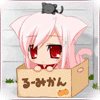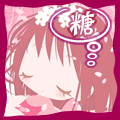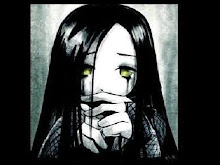The Iliad Homer
Character List
The Achaeans (also called the “Argives” or “Danaans”)
Achilles - The son of the military man Peleus and the sea-nymph Thetis. The most powerful warrior in the Iliad, Achilles commands the Myrmidons, soldiers from his homeland of Phthia in Greece. Proud and headstrong, he takes offense easily and reacts with blistering indignation when he perceives that his honor has been slighted. Achilles' wrath at Agamemnon for taking his war prize, the maiden Briseis, forms the main subject of the Iliad.
Achilles (In-Depth Analysis)
Agamemnon (also called “Atrides”) - King of Mycenae and leader of the Achaean army; brother of King Menelaus of Sparta. Arrogant and often selfish, Agamemnon provides the Achaeans with strong but sometimes reckless and self-serving leadership. Like Achilles, he lacks consideration and forethought. Most saliently, his tactless appropriation of Achilles' war prize, the maiden Briseis, creates a crisis for the Achaeans, when Achilles, insulted, withdraws from the war.
Agamemnon (In-Depth Analysis)
Patroclus - Achilles' beloved friend, companion, and advisor, Patroclus grew up alongside the great warrior in Phthia, under the guardianship of Peleus. Devoted to both Achilles and the Achaean cause, Patroclus stands by the enraged Achilles but also dons Achilles' terrifying armor in an attempt to hold the Trojans back.
Odysseus - A fine warrior and the cleverest of the Achaean commanders. Along with Nestor, Odysseus is one of the Achaeans' two best public speakers. He helps mediate between Agamemnon and Achilles during their quarrel and often prevents them from making rash decisions.
Diomedes (also called “Tydides”) - The youngest of the Achaean commanders, Diomedes is bold and sometimes proves impetuous. After Achilles withdraws from combat, Athena inspires Diomedes with such courage that he actually wounds two gods, Aphrodite and Ares.
Great Ajax - An Achaean commander, Great Ajax (sometimes called “Telamonian Ajax” or simply “Ajax”) is the second mightiest Achaean warrior after Achilles. His extraordinary size and strength help him to wound Hector twice by hitting him with boulders. He often fights alongside Little Ajax, and the pair is frequently referred to as the “Aeantes.”
Little Ajax - An Achaean commander, Little Ajax is the son of Oileus (to be distinguished from Great Ajax, the son of Telamon). He often fights alongside Great Ajax, whose stature and strength complement Little Ajax's small size and swift speed. The two together are sometimes called the “Aeantes.”
Nestor - King of Pylos and the oldest Achaean commander. Although age has taken much of Nestor's physical strength, it has left him with great wisdom. He often acts as an advisor to the military commanders, especially Agamemnon. Nestor and Odysseus are the Achaeans' most deft and persuasive orators, although Nestor's speeches are sometimes long-winded.
Menelaus - King of Sparta; the younger brother of Agamemnon. While it is the abduction of his wife, Helen, by the Trojan prince Paris that sparks the Trojan War, Menelaus proves quieter, less imposing, and less arro-gant than Agamemnon. Though he has a stout heart, Menelaus is not among the mightiest Achaean warriors.
Idomeneus - King of Crete and a respected commander. Idomeneus leads a charge against the Trojans in Book 13.
Machaon - A healer. Machaon is wounded by Paris in Book 11.
Calchas - An important soothsayer. Calchas's identification of the cause of the plague ravaging the Achaean army in Book 1 leads inadvertently to the rift between Agamemnon and Achilles that occupies the first nineteen books of the Iliad.
Peleus - Achilles' father and the grandson of Zeus. Although his name often appears in the epic, Peleus never appears in person. Priam powerfully invokes the memory of Peleus when he convinces Achilles to return Hector's corpse to the Trojans in Book 24.
Phoenix - A kindly old warrior, Phoenix helped raise Achilles while he himself was still a young man. Achilles deeply loves and trusts Phoenix, and Phoenix mediates between him and Agamemnon during their quarrel.
The Myrmidons - The soldiers under Achilles' command, hailing from Achilles' homeland, Phthia.
The Trojans
Hector - A son of King Priam and Queen Hecuba, Hector is the mightiest warrior in the Trojan army. He mirrors Achilles in some of his flaws, but his bloodlust is not so great as that of Achilles. He is devoted to his wife, Andromache, and son, Astyanax, but resents his brother Paris for bringing war upon their family and city.
Hector (In-Depth Analysis)
Priam - King of Troy and husband of Hecuba, Priam is the father of fifty Trojan warriors, including Hector and Paris. Though too old to fight, he has earned the respect of both the Trojans and the Achaeans by virtue of his level-headed, wise, and benevolent rule. He treats Helen kindly, though he laments the war that her beauty has sparked.
Hecuba - Queen of Troy, wife of Priam, and mother of Hector and Paris.
Paris (also known as “Alexander”) - A son of Priam and Hecuba and brother of Hector. Paris's abduction of the beautiful Helen, wife of Menelaus, sparked the Trojan War. Paris is self-centered and often unmanly. He fights effectively with a bow and arrow (never with the more manly sword or spear) but often lacks the spirit for battle and prefers to sit in his room making love to Helen while others fight for him, thus earning both Hector's and Helen's scorn.
Helen - Reputed to be the most beautiful woman in the ancient world, Helen left her husband, Menelaus, to run away with Paris. She loathes herself now for the misery that she has caused so many Trojan and Achaean men. Although her contempt extends to Paris as well, she continues to stay with him.
Aeneas - A Trojan nobleman, the son of Aphrodite, and a mighty warrior. The Romans believed that Aeneas later founded their city (he is the protagonist of Virgil's masterpiece the Aeneid).
Andromache - Hector's loving wife, Andromache begs Hector to withdraw from the war and save himself before the Achaeans kill him.
Astyanax - Hector and Andromache's infant son.
Polydamas - A young Trojan commander, Polydamas sometimes figures as a foil for Hector, proving cool-headed and prudent when Hector charges ahead. Polydamas gives the Trojans sound advice, but Hector seldom acts on it.
Glaucus - A powerful Trojan warrior, Glaucus nearly fights a duel with Diomedes. The men's exchange of armor after they realize that their families are friends illustrates the value that ancients placed on kinship and camaraderie.
Agenor - A Trojan warrior who attempts to fight Achilles in Book 21. Agenor delays Achilles long enough for the Trojan army to flee inside Troy's walls.
Dolon - A Trojan sent to spy on the Achaean camp in Book 10.
Pandarus - A Trojan archer. Pandarus's shot at Menelaus in Book 4 breaks the temporary truce between the two sides.
Antenor - A Trojan nobleman, advisor to King Priam, and father of many Trojan warriors. Antenor argues that Helen should be returned to Menelaus in order to end the war, but Paris refuses to give her up.
Sarpedon - One of Zeus's sons. Sarpedon's fate seems intertwined with the gods' quibbles, calling attention to the unclear nature of the gods' relationship to Fate.
Chryseis - Chryses's daughter, a priest of Apollo in a Trojan- allied town.
Briseis - A war prize of Achilles. When Agamemnon is forced to return Chryseis to her father, he appropriates Briseis as compensation, sparking Achilles' great rage.
Chryses - A priest of Apollo in a Trojan-allied town; the father of Chryseis, whom Agamemnon takes as a war prize.
The Gods and Immortals
Zeus - King of the gods and husband of Hera, Zeus claims neutrality in the mortals' conflict and often tries to keep the other gods from participating in it. However, he throws his weight behind the Trojan side for much of the battle after the sulking Achilles has his mother, Thetis, ask the god to do so.
Hera - Queen of the gods and Zeus's wife, Hera is a conniving, headstrong woman. She often goes behind Zeus's back in matters on which they disagree, working with Athena to crush the Trojans, whom she passionately hates.
Athena - The goddess of wisdom, purposeful battle, and the womanly arts; Zeus's daughter. Like Hera, Athena passionately hates the Trojans and often gives the Achaeans valuable aid.
Thetis - A sea-nymph and the devoted mother of Achilles, Thetis gets Zeus to help the Trojans and punish the Achaeans at the request of her angry son. When Achilles finally rejoins the battle, she commissions Hephaestus to design him a new suit of armor.
Apollo - A son of Zeus and twin brother of the goddess Artemis, Apollo is god of the arts and archery. He supports the Trojans and often intervenes in the war on their behalf.
Aphrodite - Goddess of love and daughter of Zeus, Aphrodite is married to Hephaestus but maintains a romantic relationship with Ares. She supports Paris and the Trojans throughout the war, though she proves somewhat ineffectual in battle.
Poseidon - The brother of Zeus and god of the sea. Poseidon holds a long-standing grudge against the Trojans because they never paid him for helping them to build their city. He therefore supports the Achaeans in the war.
Hephaestus - God of fire and husband of Aphrodite, Hephaestus is the gods' metalsmith and is known as the lame or crippled god. Although the text doesn't make clear his sympathies in the mortals' struggle, he helps the Achaeans by forging a new set of armor for Achilles and by rescuing Achilles during his fight with a river god.
Artemis - Goddess of the hunt, daughter of Zeus, and twin sister of Apollo. Artemis supports the Trojans in the war.
Ares - God of war and lover of Aphrodite, Ares generally supports the Trojans in the war.
Hermes - The messenger of the gods. Hermes escorts Priam to Achilles' tent in Book 24.
Iris - Zeus's messenger.
The Iliad Homer
Analysis of Major Characters
Achilles
Although Achilles possesses superhuman strength and has a close relationship with the gods, he may strike modern readers as less than heroic. He has all the marks of a great warrior, and indeed proves the mightiest man in the Achaean army, but his deep-seated character flaws constantly impede his ability to act with nobility and integrity. He cannot control his pride or the rage that surges up when that pride is injured. This attribute so poisons him that he abandons his comrades and even prays that the Trojans will slaughter them, all because he has been slighted at the hands of his commander, Agamemnon. Achilles is driven primarily by a thirst for glory. Part of him yearns to live a long, easy life, but he knows that his personal fate forces him to choose between the two. Ultimately, he is willing to sacrifice everything else so that his name will be remembered.
Like most Homeric characters, Achilles does not develop significantly over the course of the epic. Although the death of Patroclus prompts him to seek reconciliation with Agamemnon, it does not alleviate his rage, but instead redirects it toward Hector. The event does not make Achilles a more deliberative or self-reflective character. Bloodlust, wrath, and pride continue to consume him. He mercilessly mauls his opponents, brazenly takes on the river Xanthus, ignobly desecrates the body of Hector, and savagely sacrifices twelve Trojan men at the funeral of Patroclus. He does not relent in this brutality until the final book of the epic, when King Priam, begging for the return of Hector's desecrated corpse, appeals to Achilles' memory of his father, Peleus. Yet it remains unclear whether a father's heartbroken pleas really have transformed Achilles, or whether this scene merely testifies to Achilles' capacity for grief and acquaintance with anguish, which were already proven in his intense mourning of Patroclus.
Agamemnon
Agamemnon, king of Mycenae and commander-in-chief of the Achaean army, resembles Achilles in some respects. Though not nearly as strong, he has a similarly hot temper and prideful streak. When Agamemnon's insulting demand that Achilles relinquish his war prize, Briseis, causes Achilles to withdraw angrily from battle, the suffering that results for the Greek army owes as much to Agamemnon's stubbornness as to that of Achilles. But Agamemnon's pride makes him more arrogant than Achilles. While Achilles' pride flares up after it is injured, Agamemnon uses every opportunity to make others feel the effects of his. He always expects the largest portions of the plunder, even though he takes the fewest risks in battle. Additionally, he insists upon leading the army, even though his younger brother Menelaus, whose wife, Helen, was stolen by Paris, possesses the real grievance against the Trojans. He never allows the Achaeans to forget his kingly status.
Agamemnon also differs from Achilles in his appreciation of subtlety. Achilles remains fiercely devoted to those who love him but devotedly vicious to those who do him harm; he sees no shades of gray. Agamemnon, however, remains fundamentally concerned with himself, and he has the cunning to manipulate people and situations for his own benefit. He does not trust his troops blindly, but tests their loyalty, as in Book 2. Although he reconciles with Achilles in Book 19, he shirks personal responsibility with a forked-tongued indictment of Fate, Ruin, and the gods. Whereas Achilles is wholly consumed by his emotions, Agamemnon demonstrates a deft ability to keep himself—and others—under control. When he commits wrongs, he does so not out of blind rage and frustration like Achilles, but out of amoral, self-serving cunning. For this reason, Homer's portrait of Agamemnon ultimately proves unkind, and the reader never feels the same sympathy for him as for Achilles.
Hector
Hector is the mightiest warrior in the Trojan army. Although he meets his match in Achilles, he wreaks havoc on the Achaean army during Achilles' period of absence. He leads the assault that finally penetrates the Achaean ramparts, he is the first and only Trojan to set fire to an Achaean ship, and he kills Patroclus. Yet his leadership contains discernible flaws, especially toward the end of the epic, when the participation of first Patroclus and then Achilles reinvigorates the Achaean army. He demonstrates a certain cowardice when, twice in Book 17, he flees Great Ajax. Indeed, he recovers his courage only after receiving the insults of his comrades—first Glaucus and then Aeneas. He can often become emotionally carried away as well, treating Patroclus and his other victims with rash cruelty. Later, swept up by a burst of confidence, he foolishly orders the Trojans to camp outside Troy's walls the night before Achilles returns to battle, thus causing a crucial downfall the next day.
But although Hector may prove overly impulsive and insufficiently prudent, he does not come across as arrogant or overbearing, as Agamemnon does. Moreover, the fact that Hector fights in his homeland, unlike any of the Achaean commanders, allows Homer to develop him as a tender, family-oriented man. Hector shows deep, sincere love for his wife and children. Indeed, he even treats his brother Paris with forgiveness and indulgence, despite the man's lack of spirit and preference for lovemaking over military duty. Hector never turns violent with him, merely aiming frustrated words at his cowardly brother. Moreover, although Hector loves his family, he never loses sight of his responsibility to Troy. Admittedly, he runs from Achilles at first and briefly entertains the delusional hope of negotiating his way out of a duel. However, in the end he stands up to the mighty warrior, even when he realizes that the gods have abandoned him. His refusal to flee even in the face of vastly superior forces makes him the most tragic figure in the poem.
Themes, Motifs & Symbols
Themes
Themes are the fundamental and often universal ideas explored in a literary work.
The Glory of War
One can make a strong argument that the Iliad seems to celebrate war. Characters emerge as worthy or despicable based on their degree of competence and bravery in battle. Paris, for example, doesn't like to fight, and correspondingly receives the scorn of both his family and his lover. Achilles, on the other hand, wins eternal glory by explicitly rejecting the option of a long, comfortable, uneventful life at home. The text itself seems to support this means of judging character and extends it even to the gods. The epic holds up warlike deities such as Athena for the reader's admiration while it makes fun of gods who run from aggression, using the timidity of Aphrodite and Artemis to create a scene of comic relief. To fight is to prove one's honor and integrity, while to avoid warfare is to demonstrate laziness, ignoble fear, or misaligned priorities.
To be sure, the Iliad doesn't ignore the realities of war. Men die gruesome deaths; women become slaves and concubines, estranged from their tearful fathers and mothers; a plague breaks out in the Achaean camp and decimates the army. In the face of these horrors, even the mightiest warriors occasionally experience fear, and the poet tells us that both armies regret that the war ever began. Though Achilles points out that all men, whether brave or cowardly, meet the same death in the end, the poem never asks the reader to question the legitimacy of the ongoing struggle. Homer never implies that the fight constitutes a waste of time or human life. Rather, he portrays each side as having a justifiable reason to fight and depicts warfare as a respectable and even glorious manner of settling the dispute.
Military Glory over Family Life
A theme in the Iliad closely related to the glory of war is the predominance of military glory over family. The text clearly admires the reciprocal bonds of deference and obligation that bind Homeric families together, but it respects much more highly the pursuit of kleos, the “glory” or “renown” that one wins in the eyes of others by performing great deeds. Homer constantly forces his characters to choose between their loved ones and the quest for kleos, and the most heroic characters invariably choose the latter. Andromache pleads with Hector not to risk orphaning his son, but Hector knows that fighting among the front ranks represents the only means of “winning my father great glory.” Paris, on the other hand, chooses to spend time with Helen rather than fight in the war; accordingly, both the text and the other characters treat him with derision. Achilles debates returning home to live in ease with his aging father, but he remains at Troy to win glory by killing Hector and avenging Patroclus. The gravity of the decisions that Hector and Achilles make is emphasized by the fact that each knows his fate ahead of time. The characters prize so highly the martial values of honor, noble bravery, and glory that they willingly sacrifice the chance to live a long life with those they love.
The Impermanence of Human Life and Its Creations
Although the Iliad chronicles a very brief period in a very long war, it remains acutely conscious of the specific ends awaiting each of the people involved. Troy is destined to fall, as Hector explains to his wife in Book 6. The text announces that Priam and all of his children will die—Hector dies even before the close of the poem. Achilles will meet an early end as well, although not within the pages of the Iliad. Homer constantly alludes to this event, especially toward the end of the epic, making clear that even the greatest of men cannot escape death. Indeed, he suggests that the very greatest—the noblest and bravest—may yield to death sooner than others.
Similarly, the Iliad recognizes, and repeatedly reminds its readers, that the creations of mortals have a mortality of their own. The glory of men does not live on in their constructions, institutions, or cities. The prophecy of Calchas, as well as Hector's tender words with Andromache and the debates of the gods, constantly remind the reader that Troy's lofty ramparts will fall. But the Greek fortifications will not last much longer. Though the Greeks erect their bulwarks only partway into the epic, Apollo and Poseidon plan their destruction as early as Book 12. The poem thus emphasizes the ephemeral nature of human beings and their world, suggesting that mortals should try to live their lives as honorably as possible, so that they will be remembered well. For if mortals' physical bodies and material creations cannot survive them, perhaps their words and deeds can. Certainly the existence of Homer's poem would attest to this notion.
Motifs
Motifs are recurring structures, contrasts, or literary devices that can help to develop and inform the text's major themes.
Armor
One would naturally expect a martial epic to depict men in arms, but armor in the Iliad emerges as something more than merely a protective cover for a soldier's body. In fact, Homer often portrays a hero's armor as having an aura of its own, separate from its wearer. In one of the epic's more tender scenes, Hector removes his helmet to keep its horsehair crest from frightening his son Astyanax. When Patroclus wears Achilles' armor to scare the Trojans and drive them from the ships, Apollo and Hector quickly see through the disguise. Then, when a fight breaks out over Patroclus's fallen body, the armor goes one way and the corpse another. Hector dons the armor, but it ends up betraying him, as it were, in favor of its former owner. Achilles' knowledge of its vulnerabilities makes it easier for him to run Hector through with his sword. By this point in the story, Achilles has a new set of armor, fashioned by the god Hephaestus, which also seems to have a life of its own. While Achilles' mortal body can be wounded—and indeed, the poem reminds us of Achilles' impending death on many occasions—Homer describes the divine armor as virtually impervious to assault.
Burial
While martial epics naturally touch upon the subject of burial, the Iliad lingers over it. The burial of Hector is given particular attention, as it marks the melting of Achilles' crucial rage. The mighty Trojan receives a spectacular funeral that comes only after an equally spectacular fight over his corpse. Patroclus's burial also receives much attention in the text, as Homer devotes an entire book to the funeral and games in the warrior's honor. The poem also describes burials unconnected to particular characters, such as in Book 7, when both armies undertake a large-scale burial of their largely unnamed dead. The Iliad's interest in burial partly reflects the interests of ancient Greek culture as a whole, which stressed proper burial as a requirement for the soul's peaceful rest. However, it also reflects the grim outlook of the Iliad, its interest in the relentlessness of fate and the impermanence of human life.
Fire
Fire emerges as a recurrent image in the Iliad, often associated with internal passions such as fury or rage, but also with their external manifestations. Homer describes Achilles as “blazing” in Book 1 and compares the sparkle of his freshly donned armor to the sun. Moreover, the poem often compares a hero's charge or an onslaught of troops to a conflagration sweeping through a field. But fire doesn't appear just allegorically or metaphorically; it appears materially as well. The Trojans light fires in Book 8 to watch the Achaean army and to prevent it from slipping away by night. They constantly threaten the Achaean ships with fire and indeed succeed in torching one of them. Thus, whether present literally or metaphorically, the frequency with which fire appears in the Iliad indicates the poem's over-arching concern with instances of profound power and destruction.
Symbols
Symbols are objects, characters, figures, or colors used to represent abstract ideas or concepts.
The Achaean Ships
The Achaean ships symbolize the future of the Greek race. They constitute the army's only means of conveying itself home, whether in triumph or defeat. Even if the Achaean army were to lose the war, the ships could bring back survivors; the ships' destruction, however, would mean the annihilation—or automatic exile—of every last soldier. Homer implies that some men shirked the war and stayed in Greece, while others, such as Peleus, were too old to fight. However, to Homer's original audience, the Achaean warriors at Troy represented more than a mere subpopulation of the Greek race. Homer's contemporaries believed that the heroes represented here actually lived historically, as real kings who ruled the various city-states of Greece in their earliest years. Ancient audiences regarded them as playing definitive roles in the formation and development of Greece as they knew it. The mass death of these leaders and role models would have meant the decimation of a civilization.
The Shield of Achilles
The Iliad is an extremely compressed narrative. Although it treats many of the themes of human experience, it does so within the scope of a few days out of a ten-year war. The shield constitutes only a tiny part in this martial saga, a single piece of armor on a single man in one of the armies—yet it provides perspective on the entire war. Depicting normal life in peacetime, it symbolizes the world beyond the battlefield, and implies that war constitutes only one aspect of existence. Life as a whole, the shield reminds us, includes feasts and dances and marketplaces and crops being harvested. Human beings may serve not only as warriors but also as artisans and laborers in the fields. Not only do they work, they also play, as the shield depicts with its dancing children. Interestingly, although Homer glorifies war and the life of the warrior throughout most of his epic, his depiction of everyday life as it appears on the shield comes across as equally noble, perhaps preferable.
http://www.sparknotes.com/lit/iliad/section1.html [Book Title Summary]
Help Feedback Make a request Report an error Send to a friend
Contact Us Privacy Policy Terms and Conditions About Sitemap
©2009 SparkNotes LLC, All Rights Reserved.
Search Blog
Wednesday, July 22, 2009
Subscribe to:
Post Comments (Atom)












No comments:
Post a Comment